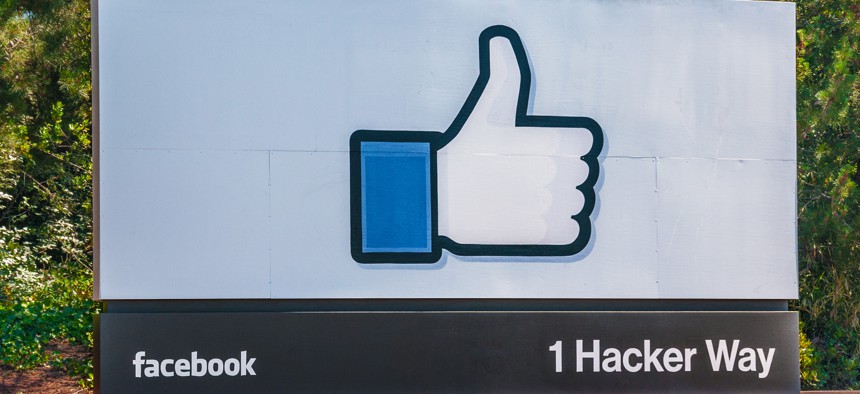Facebook Says It's Introducing a Dislike Button

Facebook's entrance sign at the corporate office in California Nick Fox/Shutterstock.com
The biggest social network might become a lot more negative.
For more than six years, every Facebook status, photo, or page has had a little “Like” button hovering next to it. Want to show your approval? Click that button.
But not everything in the world is meant to be approved. And—nearly since the “Like” button first saw the light of day—users have clamored for a “Dislike” button. Now, they may be getting their wish.
On Tuesday, Mark Zuckerberg, the company’s founder and CEO, told an internal corporate Town Hall that Facebook would soon be rolling out the feature.
“I think people have asked about the dislike button for many years,” Zuckerberg said, according to Re/Code and Business Insider. “Today is a special day because today is the day I can say we’re working on it and shipping it.”
Zuckerberg added that the “Dislike” button wouldn’t work like Reddit’s up- and downvote mechanism, which is probably the most famous “dislike” button on the Internet. Instead, he said, users would now have a technical way to express regret or sympathy in a situation.
“What they really want is the ability to express empathy. Not every moment is a good moment,” he said.
Zuckerberg’s commitment to shipping such a button is new, but his interest in giving users an option other than “Like” is not. Late last year, he said he wanted to build a non-like button but hadn’t settled on the right language yet. And back in December 2013, programmers at Facebook’s compassion-themed hackathon proposed introducing a “Sympathize” button.
Designing for all the moments in life—not just the happy ones—has also been the subject of some thought from major technology companies lately. Last year, a post by the early web developer Eric Meyer about the “inadvertent algorithmic cruelty” of Facebook’s year in review feature went viral and prompted an apology from the company. And last month, many critics (including myself) argued that Twitter and Facebook’s auto-playing video feature failed to account for the full scope of events (and horrors) that could be captured on film.
So will “the Dislike button” that Zuckerberg is discussing take the form of an actual “Dislike” button adjacent to the thumbs-up of “Like”? I’m not sure. Will Oremus, a technology reporter at Slate, hypothesizes on Twitter that he’s “pretty sure it’s going to be like a suite of alternatives to ‘Like,’ one of which may or may not actually be the word ‘Dislike.’” The original Re/Code report wonders if Facebook’s feature will resemble Slack’s new emoji responses, which allow any user to respond to a message with any emoji.
Myself, I wonder if the message that Facebook really wants to convey with a “Dislike” button—which is something like I’m sorry, I sympathize, I feel you—is best conveyed by a heart. The company already slides a thumbs-up next to all its posts, a universal symbol of approval. Why not also insert a cartoonish heart? In various situations, ♥ can represent joy, anguish, empathy, and adoration. Much like the word “friend,” it is already wonderfully multivalent—an ambiguity that Facebook can exploit, as it becomes a messenger of thought and feeling for more than 1 billion people every day.
NEXT STORY: Video: How to Preserve Your iPhone Battery






